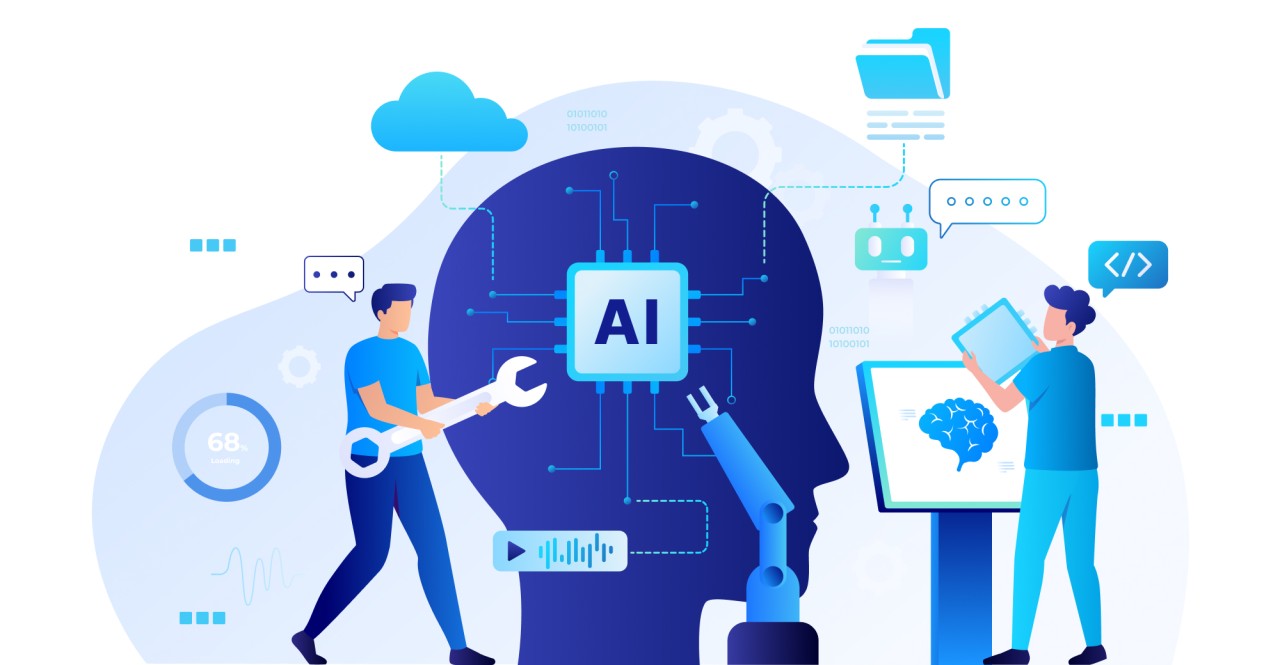
In the rapidly evolving landscape of online digital marketing, artificial intelligence (AI) has emerged as a game-changer. Businesses are increasingly adopting AI technologies to streamline processes, enhance customer engagement, and drive conversions. This blog explores the latest AI implementations in online digital marketing solutions, highlighting their benefits, applications, and future trends.
Understanding AI in Digital Marketing
AI refers to the simulation of human intelligence processes by computer systems. In digital marketing, it encompasses various technologies, including machine learning, natural language processing, and predictive analytics. These technologies help marketers analyze vast amounts of data, understand customer behavior, and automate tasks, ultimately enhancing their marketing strategies.
Benefits of AI in Digital Marketing
- Data-Driven Decision Making: AI analyzes large datasets to extract actionable insights, enabling marketers to make informed decisions based on real-time data.
- Enhanced Customer Experience: AI tools can personalize user experiences by analyzing customer preferences and behavior, leading to more relevant interactions.
- Increased Efficiency: Automating repetitive tasks allows marketing teams to focus on strategic initiatives, improving overall productivity.
- Predictive Analytics: AI can forecast trends and customer behaviors, allowing businesses to anticipate needs and tailor their marketing strategies accordingly.
Latest AI Implementations in Digital Marketing
1. Chatbots and Conversational AI
Chatbots have revolutionized customer service and engagement in digital marketing. Powered by natural language processing (NLP), these AI-driven tools provide instant responses to customer inquiries, offer personalized recommendations, and assist with transactions 24/7. Companies like Drift and Intercom are leading the way with their sophisticated chatbot solutions, which not only enhance customer experience but also gather valuable data on customer preferences and behaviors.
2. Predictive Analytics
Predictive analytics utilizes machine learning algorithms to analyze historical data and predict future outcomes. Tools like Google Analytics and HubSpot incorporate predictive analytics to help marketers understand customer behavior, segment audiences, and forecast sales trends. This allows businesses to tailor their marketing efforts, optimize ad spend, and improve conversion rates.
3. Personalization Engines
Personalization has become a cornerstone of effective digital marketing. AI-driven personalization engines analyze user data to deliver tailored content, product recommendations, and targeted advertisements. Platforms like Adobe Experience Cloud and Dynamic Yield leverage AI to create personalized experiences across various channels, increasing customer engagement and loyalty.
4. Content Creation and Curation
AI tools are increasingly used for content generation and curation. Tools like Jasper and Writesonic can generate high-quality written content based on specific prompts, saving time and resources for marketers. Additionally, AI-powered content curation tools like Feedly and Curata analyze user preferences and behavior to suggest relevant content, ensuring that marketers share valuable information with their audience.
5. Social Media Insights
AI technologies are enhancing social media marketing by providing deep insights into customer behavior and trends. Tools like Hootsuite Insights and Sprout Social use AI to analyze social media interactions, sentiment, and engagement metrics. This helps marketers understand their audience better, optimize content strategies, and identify potential influencers for partnerships.
6. Programmatic Advertising
Programmatic advertising leverages AI to automate the buying and selling of online ad space. Platforms like Google Ads and The Trade Desk utilize algorithms to optimize ad placements in real-time, targeting specific audiences based on data analytics. This efficiency not only reduces costs but also improves ad performance by ensuring that ads reach the right people at the right time.
7. Voice Search Optimization
With the rise of voice-activated devices, optimizing for voice search is crucial. AI technologies enable marketers to understand natural language queries and adjust their SEO strategies accordingly. By focusing on conversational keywords and providing concise answers to common questions, businesses can improve their visibility in voice search results.
8. Email Marketing Automation
AI is transforming email marketing through automation and personalization. Platforms like Mailchimp and ActiveCampaign use AI to segment audiences, optimize send times, and create personalized content. This not only enhances engagement but also increases the likelihood of conversions.
Future Trends in AI and Digital Marketing
As AI technology continues to evolve, several trends are shaping the future of digital marketing:
1. Advanced Customer Segmentation
AI will enable even more granular customer segmentation, allowing marketers to create highly targeted campaigns that resonate with specific audience groups. This will lead to improved engagement and conversion rates.
2. Enhanced Visual Recognition
AI’s ability to analyze images and videos will transform visual marketing strategies. Brands will increasingly leverage visual content to engage customers, utilizing AI for image recognition and targeted advertising.
3. Hyper-Personalization
The future of personalization will go beyond basic demographics. AI will enable hyper-personalized experiences based on real-time data, allowing businesses to anticipate customer needs and preferences.
4. Improved ROI Measurement
AI-driven analytics will enhance marketers’ ability to measure ROI across various campaigns. Advanced attribution models will provide deeper insights into the effectiveness of different marketing channels and strategies.
5. Ethical AI Usage
As AI becomes more prevalent, ethical considerations will come to the forefront. Marketers will need to navigate data privacy issues and ensure transparent AI usage to maintain customer trust.
Conclusion
The integration of AI in online digital marketing solutions is transforming how businesses engage with their customers. From chatbots to predictive analytics, these technologies offer numerous benefits that enhance efficiency, personalization, and decision-making. As AI continues to advance, marketers must stay informed about the latest trends and implementations to leverage these tools effectively. Embracing AI not only improves marketing outcomes but also positions businesses for success in an increasingly competitive digital landscape.
